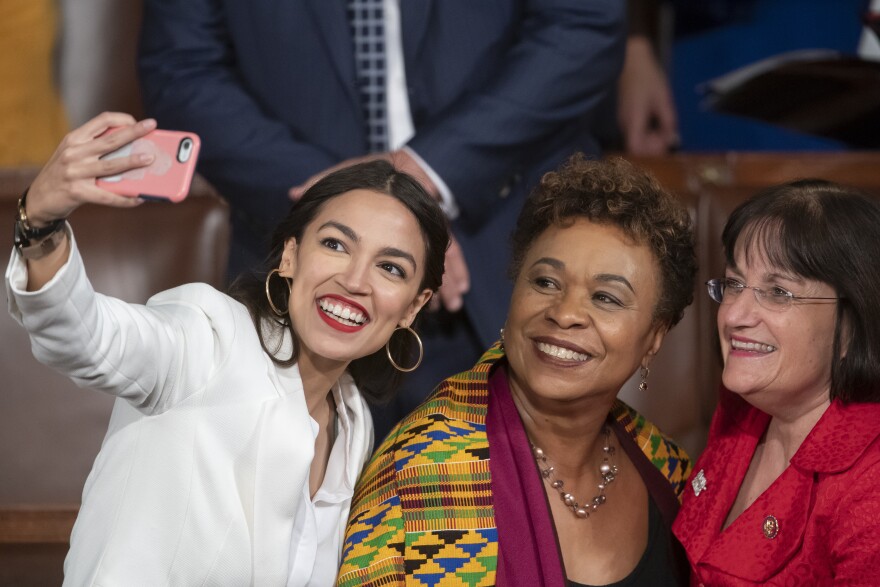What political shifts will 2019 bring? Democrats have taken control of the U.S. House of Representatives, while Republicans maintain control of the U.S. Senate. How will things change with a divided federal government? And the newly-sworn in congressional class is the most diverse in the nation’s history with a record number of women and people of color now in office. Will this new energy bring substantive change?
Host Frank Stasio talks to political experts Kerry Haynie, Susan Roberts, Deondra Rose and Michael Bitzer about their analyses on the biggest political questions of 2019. They will also share their thoughts on the looming 2020 presidential election and review the emerging candidates on both the left and the right. Plus, in the North Carolina legislature, Republicans lost their veto-proof majority. The panel will investigate whether this signals a political shift in the state.
Haynie is an associate professor of political science and African and African-American studies at Duke University. Roberts is a professor of political science at Davidson College. Rose is an assistant professor of public policy and political science at Duke University and is the author of “Citizens By Degree: Higher Education Policy and the Changing Gender Dynamics of American Citizenship” (Oxford University Press/2018). Bitzer is a professor of politics and history at Catawba College.
Interview Highlights:
Rose on the divided federal government:
I'm going to be watching the dynamic between the president and the new Democratic majority in Congress, because I feel like right now there's a major incentive — a political incentive— for a showdown. And so I think from the president, we're going to see him digging his heels in and really showing his base that he's serious about getting his wall done. But I think on the left we see Democrats who really don't have much of an incentive to capitulate there. I think they really want to come off as the adults in the room in advance … Of that 2020 election.
Roberts on the new energy in Congress:
For decades ... Members of Congress have run for Congress by running against Congress. And so running to change things is decades old … The Brookings Institute had a very important factoid that only 41 percent of the newly-elected members of the House have had any political experience. That's good, and that's bad. As someone says: You have to know where the bathrooms are to be really effective, [and] it takes you a few weeks ... I think we're right in terms of there has to be new energy and new ideas, and people are frustrated with politicians, with Congress, the president, the direction of the country. And so something does need to change.
Haynie on a challenge the Democratic Party is facing:
When the Congress was called into session yesterday, and then the leadership appeared, it was a night and day difference. You see Nancy Pelosi, Steny Hoyer, and Congressman Clyburn, [all] in their late 70s, and [then] this young generation. So the leadership doesn't reflect what we actually see — this new energy. That's going to be a balance that the Democrats will have to work out moving into 2020 if they want that electorate that brought this new energy in Congress to stay with them in the 2020 presidential election.
Bitzer on the bigger changes happening in American politics:
If you look at millennials, they tend to be a center-left-oriented generation, as opposed to Baby Boomers and Gen-Xers that tend to be more center-right. So the question in my mind going into 2020 is: Are we seeing the start of the demise of the Reagan coalition that has basically run the country through Baby Boomers for the past forty-some-odd years? And will we start to see a shift with the pendulum swinging in a new kind of Democratic party [that’s] aligned around perhaps a progressive, pragmatic approach that could signal a whole new cycle for presidential politics? I think we are in the cusp of a shift going on, and historically this may be the sign that we're starting to see these things evolve.




